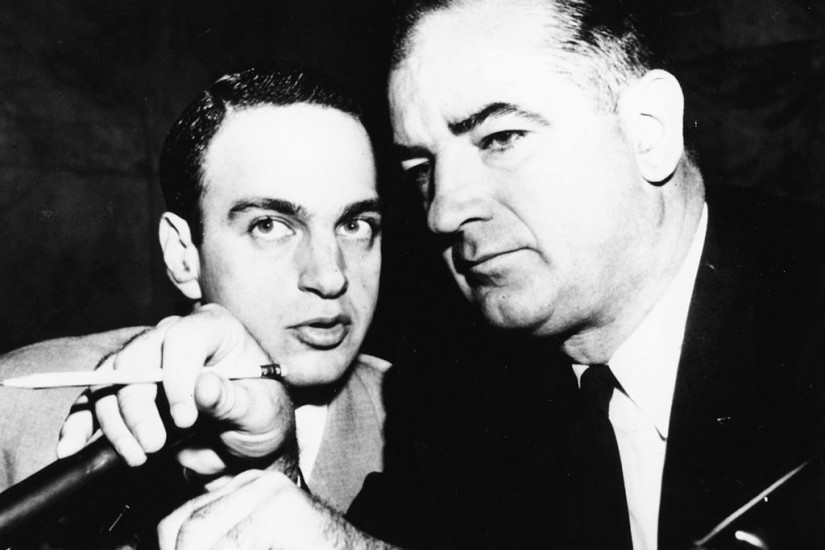There were people in the audience in L.A. who cried when Roy Cohn died. And the audience was kind of shifting in their seats and thinking “Well, should we be crying?” Which is, I guess, the point.
—Tony Kushner, in conversation with Craig Lucas, Bomb magazine, Spring 1993
Morris: In a shitty version of this play, a cheaper, less intellectually sophisticated work of art, Roy gets AIDS but getting AIDS is the punishment. But Tony Kushner doesn’t use Roy having AIDS to mock and laugh at him. It’s Rosenberg and Belize — a Blatino and a dead Jewish lady — who do all the judgment and reckoning for him.
Teachout: One reservation I’ve had about Kushner’s work is his tendency to demonize characters he thinks of as enemies. He comes about as close as he can come in overcoming it in portraying Cohn. Kushner really, to an extent not usual with him when portraying villains, puts across Cohn’s complexity as a human being.
Abraham: A good trick, if you don’t like a guy, is to play him in a way that appeals to you, on whatever level. When you project this positive element, his charisma, it deepens him; he almost mesmerizes you with his extraordinary talent and charm. Some people are really evil, but they’re also really magnetic. You can’t help but jump into bed with them. You hate yourself in the morning, but it’s great the night before.
Eustis: At one point, [Tony and I] read Whittaker Chambers’s book Witness, about his conversion from communism to Christianity. What began to emerge was that there were two strands in the American Right. They both believe the same thing: that people are selfish and evil. One wing says, because of that, we need to accept that we are fallen miserable sinners and throw ourselves on the mercy of Christ. That’s Joe. There’s another faction that thinks that people are selfish and evil, and so let’s indulge our selfishness and have as much fun as we can. That’s the Cohn wing.
